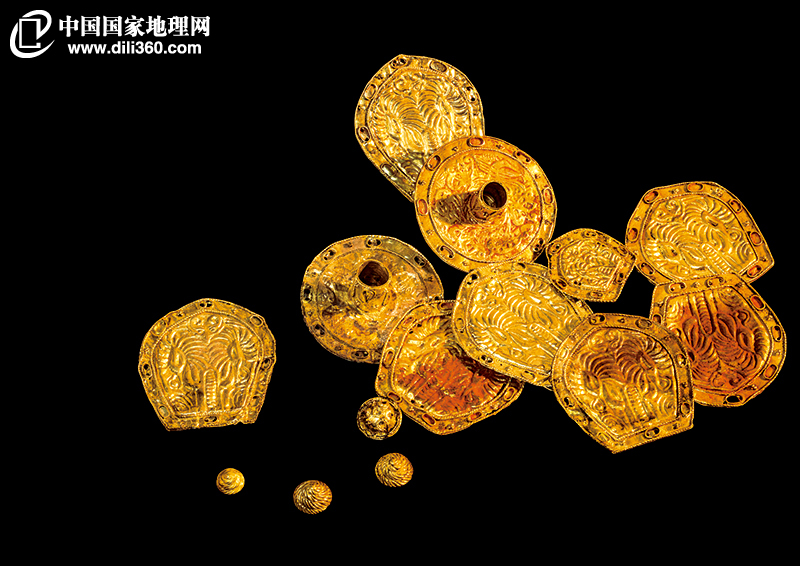Emperor Jing of Han in 154 BC defeated principalities in the war later known as the Rebellion of the Seven States. He rewarded his son, Liu Fei, for his bravery in the war and gave him the title Jiangdu Wang (the king of the Jiangdu district, now in Jiangsu province). Jiangdu district became increasingly rich, capitalizing on its geographic location and natural condition. Liu enjoyed a lavish life and exotic treasures. The relics unearthed in Liu Fei’s tomb on Mount Dayunshan reflect the extravagant court life of his time.
 |
|
These button-shaped golden ornaments with a ram’s horn pattern unearthed from the tomb of Emperor Jing of the Han Dynasty on Mount Dayunshan. [Photo/dili360.com]
|
